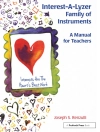Advanced Clinical Social Work Practice traces the development of relational ideas from their origin in object relations and self psychology to their evolution in current relational, intersubjectivity, and attachment theory. Relational treatment emphasizes openness and collaboration between client and therapist, mutual impact, the client’s subjectivity, and the therapist’s empathy, genuineness, and use of the self in therapeutic interaction. The approach treats the relationship and dialogue between client and therapist as crucial to the change process and shows how the therapeutic relationship can be used to help clients and therapists bridge differences, examine similarities, overcome impasses, and manage enactments.
The relational emphasis on the subjective experience of both client and therapist is beautifully illustrated throughout this book as the authors draw from their clinical work with clients from diverse backgrounds, including gay and lesbian clients, immigrants, and clients of color. They demonstrate how relational principles and techniques can be applied to multiple problems in social work practicefor example, life crises and transitions, physical and sexual abuse, mental disorders, drug addiction, and the loss of a loved one. The authors also discuss the integration of relational constructs in short-term treatment and with families and groups.
This volume opens with a historical perspective on the role of relational thinking in social work and the evolution of relational theory. It presents an overview of the key concepts in relational theory and its application throughout the treatment process with diverse clients and in different practice modalities. The book concludes with a discussion of the challenges in learning and teaching new theoretical and practice paradigms, particularly in creating a more mutual exchange in the classroom and during supervision.
表中的内容
Acknowledgments
Introduction
1. The Relational Core of Social Work Practice
2. Theoretical and Clinical Contributions: Phase 1
3. Theoretical and Clinical Contributions: Phase 2
4. Developmental Concepts
5. Assessment in Relational Treatment
6. Components of Relational Treatment
7. Transference and Countertransference: Disruptions and Enactments
8. Multicultural Issues
9. Relational Principles in Brief Treatment
10. Couple, Family, and Group Treatment
11. The Teaching and Learning Process: In the Classroom and Supervision
Epilogue
References
Index
关于作者
Eda G. Goldstein is professor emerita and director of the Post-Master’s Certificate in Advanced Clinical Practice at the New York University Silver School of Social Work. Her books include
Ego Psychology and Social Work Practice and
Object Relations Theory and Self Psychology in Social Work Practice.Dennis Miehls is an associate professor and chair of Human Behavior in the Environment Sequence at Smith College School for Social Work and coauthor of
Transforming the Legacy: Couple Therapy with Survivors of Childhood Trauma.Shoshana Ringel is associate professor at the University of Maryland School of Social Work and coauthor of
Attachment and Dynamic Practice.












